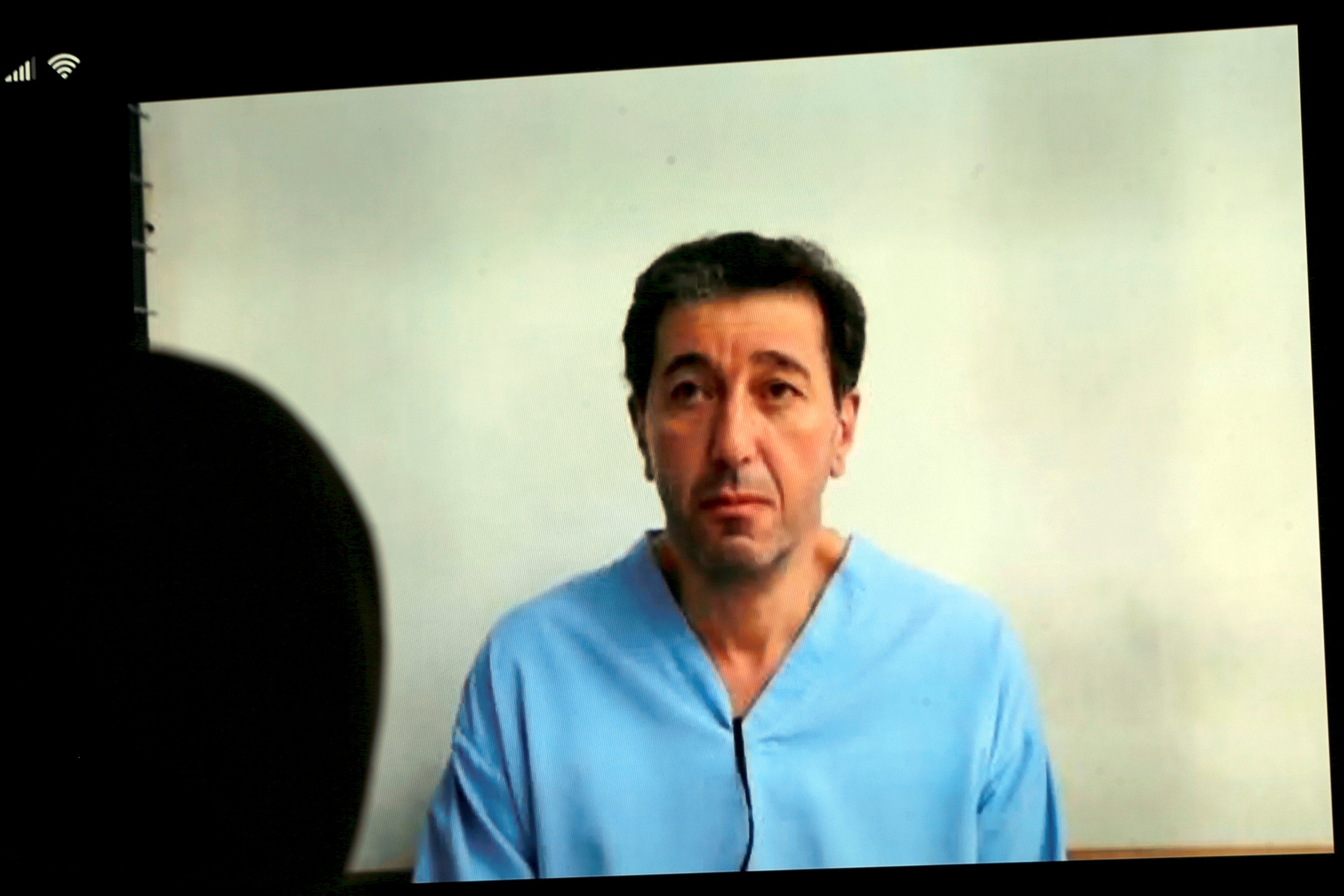Jordan rejects US request to release ex-Jordanian official accused of plot against king
Jordan rejected a U.S. request to release a former top Jordanian official imprisoned in an alleged plot against the Western-allied monarchy in September, the official's lawyer and family say

Your support helps us to tell the story
From reproductive rights to climate change to Big Tech, The Independent is on the ground when the story is developing. Whether it's investigating the financials of Elon Musk's pro-Trump PAC or producing our latest documentary, 'The A Word', which shines a light on the American women fighting for reproductive rights, we know how important it is to parse out the facts from the messaging.
At such a critical moment in US history, we need reporters on the ground. Your donation allows us to keep sending journalists to speak to both sides of the story.
The Independent is trusted by Americans across the entire political spectrum. And unlike many other quality news outlets, we choose not to lock Americans out of our reporting and analysis with paywalls. We believe quality journalism should be available to everyone, paid for by those who can afford it.
Your support makes all the difference.Jordan has rejected a U.S. request to release a former top Jordanian official imprisoned in an alleged plot against the Western-allied monarchy, according to his family and lawyer.
Bassem Awadallah, a dual Jordanian-American citizen, has spent over two years in Jordanian prison after being convicted of plotting against King Abdullah II with the king’s own half-brother. He denies the charges, and his lawyers say he was convicted in a sham trial that lacked due process.
The U.S. State Department requested he be released on humanitarian grounds in March, according to his family and his lawyer. The request came just weeks after he began a hunger strike to protest his imprisonment, resulting in his hospitalization. Jordan rebuked the request earlier this month, according to John Ashcroft, Awadullah's lawyer.
Ashcroft, a former U.S. attorney general, sharply criticized the refusal, noting that Jordan receives considerable aid from the US and should heed its requests. The U.S. gives over $1 billion a year in aid to Jordan, according to the State Department.
“When our government requested improperly detained fellow citizen, Bassem Awadallah, be released, King Abdullah’s regime without reason said no,” said a statement from Ashcroft's office. “Our government has been able to convince enemy states to release unjustly detained US citizens. It should be able to convince the king of Jordan to do the same.”
The State Department would not confirm whether it had requested Awadallah's release.
In a statement, it said the U.S. Embassy in Amman has been following the case closely since Awadallah’s imprisonment and visits him each month. It also said it is monitoring Awadallah's health, without giving any details on his condition.
Jordan's Foreign Ministry declined comment.
Jordan is a close Western ally that hosts hundreds of thousands of Mideast refugees and has long been seen as an island of stability in a volatile region. But there also are deep-rooted economic and social challenges in the country, which borders Israel, the Israel-occupied West Bank, Syria, Iraq and Saudi Arabia.
Awadallah, who once served as a top adviser to the king, and Sharif Hassan bin Zaid, a member of the royal family, were found guilty of sedition and incitement two years ago and sentenced to 15 years in prison.
Awadallah was alleged to have conspired with Prince Hamzah, the king’s half-brother, and to have sought foreign assistance in a plot against Abdullah. Hamzah remains under house arrest.
Awadallah was convicted in a closed trial that lasted just six sessions in a military court. The court denied requests by defense lawyers to call witnesses, and prosecutors shared only purported transcripts, but not original audio recordings, from surveillance of the alleged plotters.
Ashcroft said both the trial and the kingdom's refusal of the U.S. request showed a lack of due process.
“It is impossible to believe that any responsible, careful, justice-oriented consideration was given by members of King Abdullah II’s regime that resulted in this mockery of internationally-accepted judicial process and arbitrary denial of the U.S. State Department’s request,” Ashcroft wrote.
Abdullah and Hamzah are sons of King Hussein, who ruled Jordan for nearly half a century before his death in 1999. Abdullah appointed Hamzah as crown prince upon his succession but stripped him of the title in 2004.